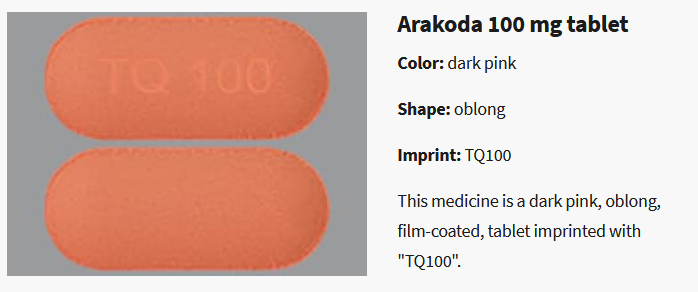Antimalarial medications are drugs used to prevent or treat malaria, a tropical disease caused by parasitic protozoa of the Plasmodium genus. Malaria is typically transmitted to humans through the bite of infected female Anopheles mosquitoes. Antimalarial medications are crucial for individuals living in or traveling to malaria-endemic regions to prevent the disease or to treat it promptly if infection occurs.

Here are some common classes of antimalarial medications:
- Chloroquine:
- Used for the treatment and prevention of malaria caused by Plasmodium species. However, resistance has developed in some regions.
- Hydroxychloroquine:
- Similar to chloroquine, used for malaria treatment and prevention. Also prescribed for certain autoimmune conditions.
- Quinine:
- Traditionally used for treating malaria, often in combination with other antimalarials.
- Artemisinin and its Derivatives (Artemether, Artesunate, Dihydroartemisinin):
- Highly effective antimalarials, often used in combination therapies. Part of artemisinin-based combination therapies (ACTs).
- Atovaquone-Proguanil (Malarone):
- A combination medication used for the prevention and treatment of malaria caused by certain Plasmodium species.
- Mefloquine:
- Used for both prevention and treatment of malaria. It is taken weekly for prevention.
- Doxycycline:
- An antibiotic that is also effective in preventing and treating malaria. It is taken daily.
- Primaquine:
- Used for the treatment of malaria and to prevent relapses of certain types of malaria.
- Tafenoquine ( Arakoda ):
- Similar to primaquine, it is used for the prevention of relapse of Plasmodium vivax malaria.
- Pyrimethamine-Sulfadoxine (Fansidar):
- An older combination antimalarial drug. Its use is limited due to resistance and potential side effects.
- Halofantrine:
- Previously used for malaria treatment; however, it has been largely replaced by more effective and safer drugs.
- Lumefantrine:
- Often used in combination with artemether in ACTs for the treatment of uncomplicated malaria.
- Clindamycin:
- An antibiotic that can be used as an alternative treatment for malaria in combination with quinine or other antimalarials.
It’s important to note that the choice of antimalarial medication depends on factors such as the specific Plasmodium species causing the infection, the geographical region, drug resistance patterns, and individual health considerations. Additionally, resistance to certain antimalarials is a growing concern, and the availability of specific drugs may vary by region.
How do Antimalarial Medications Work ?
Antimalarial medications work through various mechanisms to combat the Plasmodium parasites that cause malaria. The specific mechanisms can vary depending on the drug, but generally, these medications aim to interfere with different stages of the parasite’s life cycle. Here are some common ways in which antimalarial medications work:
- Inhibition of Parasite’s DNA Synthesis:
- Drugs like chloroquine and hydroxychloroquine work by accumulating in the parasite’s digestive vacuole, preventing the breakdown of hemoglobin. This disruption interferes with the parasite’s ability to synthesize DNA.
- Disruption of Hemoglobin Metabolism:
- Quinoline derivatives, such as chloroquine and mefloquine, interfere with the metabolism of hemoglobin in the digestive vacuole of the parasite, disrupting its nutrient intake.
- Artemisinin-Derived Compounds:
- Artemisinin and its derivatives, including artemether, artesunate, and dihydroartemisinin, work by damaging the parasite’s cell membranes and releasing free radicals. This leads to the destruction of the parasites.
- Inhibition of Parasite’s Mitochondrial Function:
- Atovaquone, in combination with proguanil (as in Malarone), inhibits the mitochondrial electron transport chain in the parasite, disrupting its energy production.
- Inhibition of Parasite’s Folate Synthesis:
- Pyrimethamine and sulfadoxine (Fansidar) interfere with the synthesis of folate in the parasite, disrupting DNA and RNA synthesis.
- Interference with Protein Synthesis:
- Doxycycline and clindamycin act by inhibiting protein synthesis in the parasite, disrupting its normal cellular functions.
- Gametocytocidal Action:
- Primaquine and tafenoquine are effective against the sexual stage of the parasite’s life cycle (gametocytes), reducing the transmission of the disease.
- Prevention of Relapse:
- Primaquine and tafenoquine are also used to prevent relapses in infections caused by Plasmodium vivax and Plasmodium ovale by targeting the dormant liver forms (hypnozoites) of the parasite.
What Are the Side Effects of Antimalarial Medications ?
Antimalarial medications, like any drugs, can be associated with side effects. The specific side effects can vary depending on the type of antimalarial medication, the dosage, and individual factors. It’s important to note that not everyone will experience these side effects, and some people may tolerate the medications well. Here are common side effects associated with some antimalarial drugs:
- Chloroquine and Hydroxychloroquine:
- Common Side Effects: Nausea, headache, dizziness, blurred vision.
- Rare but Serious Side Effects: Retinopathy (damage to the retina), cardiomyopathy (heart muscle damage), and in rare cases, neuromyotoxicity.
- Mefloquine:
- Common Side Effects: Nausea, headache, dizziness, vivid dreams or nightmares.
- Serious Side Effects: Neuropsychiatric effects such as anxiety, depression, and hallucinations. It is not recommended for individuals with a history of certain psychiatric conditions.
- Doxycycline:
- Common Side Effects: Nausea, abdominal pain, photosensitivity (increased sensitivity to sunlight), and the risk of yeast infections.
- Less Common Side Effects: Esophagitis (inflammation of the esophagus), discoloration of teeth in children under 8 years of age.
- Atovaquone-Proguanil (Malarone):
- Common Side Effects: Abdominal pain, nausea, headache, and vivid dreams.
- Less Common Side Effects: Mouth ulcers, hair loss.
- Artemisinin and its Derivatives:
- Common Side Effects: Generally well-tolerated, but may cause nausea, vomiting, and dizziness.
- Serious Side Effects: Neurotoxicity (especially with prolonged use), allergic reactions.
- Primaquine and Tafenoquine:
- Common Side Effects: Nausea, abdominal pain.
- Serious Side Effects: Hemolytic anemia (particularly in individuals with glucose-6-phosphate dehydrogenase deficiency).
It’s important to seek medical attention if you experience severe or persistent side effects. Additionally, certain antimalarial medications may not be suitable for individuals with specific medical conditions, so it’s crucial to inform your healthcare provider of your complete medical history before starting any antimalarial treatment.
Pain Medications, Pain Relief, and Pain Management